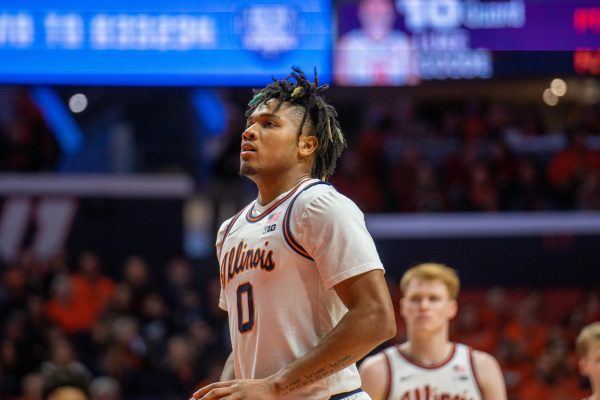Engineers study in Africa for summer
November 2, 2006
Many University students spent the previous summer as most, either serving overpriced drinks or making Xerox copies. However, there are those that pursue academia through all four seasons, even if that pursuit finds its way to Africa.
Organization of a trip to South Africa for the summer of 2006 began last fall, when seven University students applied and joined a four-week study tour.
The tour was led by Alan Hansen, an associate professor in agricultural and biological engineering, who was born in Zimbabwe, though he spent 20 years in South Africa.
In conjunction with the South African University of KwaZulu-Natal, students paired up in groups that combined American and South African students.
One group was assigned to research and deal with the production of bio-diesel, which is a renewable fuel for diesel engines derived from natural oils, such as soybean oil or animal fat.
Get The Daily Illini in your inbox!
Students worked on how to produce bio-diesel and looked at quality issues and production costs.
Another group was assigned the project of developing or designing a pedal-driven watercraft, much like a pedal-driven canoe or kayak, using specific engineering software.
“The students in this group wanted to beat the world record for a manually pedaled canoe, which was about 10 miles per hour,” said Hansen, who added that the student group was unable to reach this goal.
The student group had to do its best to assimilate the differences in technology access and resource availability, said Andy Lenkaitis, a graduate student.
“You really had to learn to use what tools you had around you, especially in South Africa. Not everything is readily available, and there won’t be a shipper or supplier within a couple hundred miles of you, so you can’t get everything overnight or the next day,” Lenkaitis said.
Outside of the rigorous research and experimentation carried on by the student clusters, Hansen ensured that students obtained a great deal of cultural and environmental exposure.
Extracurricular activities included a safari, where they observed elephants and hippopotami, a zip-line tour above a forest and a hike and a visitation to a modern day sugar cane.
“I really wanted to expose the students to the magnificent diversity that exists in Africa, outside of their engineering studies,” said Hansen.
The holistic approach taken toward the trip involving lengthy research as well as touring parts of the country definitely taught the students a lot about themselves, said Jonathan McCrady, a graduate student.
“The trip definitely gave me a much wider perspective and worldly view about how I work on my research.
“It also showed me the effects of what goes on in the United States and how it directly effects the rest of the world,” he said.
Hansen already has had numerous students express interest in an excursion for the upcoming year, although Hansen said the summer is a time when researchers get a big opportunity to catch up on a lot of work from the past year and prepare for the next.
But, if he doesn’t take part in the trip this year, Hansen said he will most definitely take part in it the following year.






